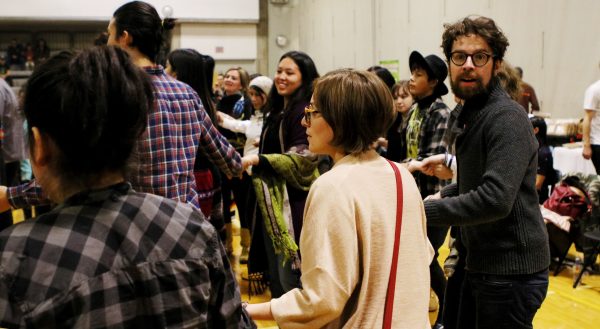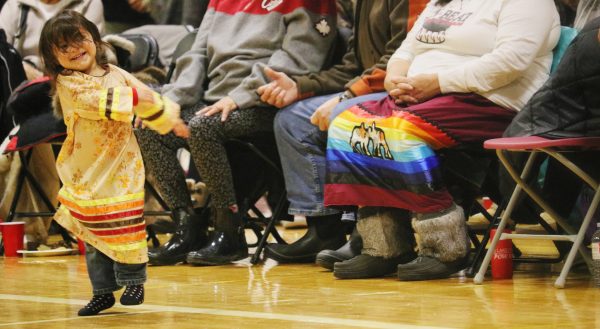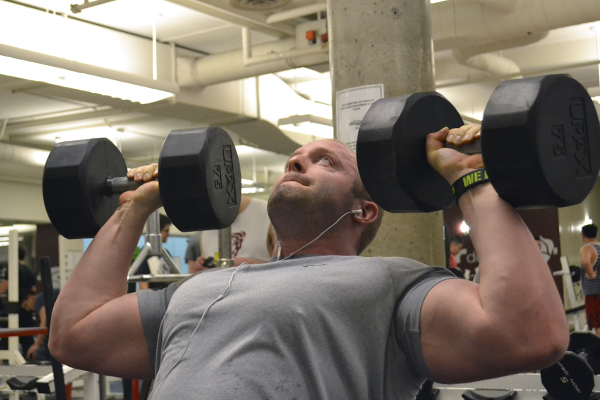Event brings students and broader community together for food, song and dance
The University of Ottawa’s Mashkawazìwomagig: Indigenous Resource Centre organized the inaugural round dance on the university’s campus on Friday evening, an event that they hope will be the first of many.
The inaugural round dance was organized in three weeks by Victoria Marchand, the coordinator of the Indigenous Resource Centre (IRC). Despite being the first time doing this, the dance drew large numbers: over 20 singers performed and even Perry Bellegarde, National Chief of the Assembly of First Nations, was in attendance.
The centre is hoping to expand its offerings because the U of O is located so centrally in the city, making it easily accessible for the community.

The general sentiment shared by everyone at the event, attendees and singers alike, is that people are looking for round dances, and if the IRC makes this a recurring event, there will always be plenty of people in attendance.
“A round dance is part of our culture where the community gathers together, Indigenous and non-Indigenous people together,” said Marchand. “You need your stick man and Elder, your drummers, and you need to treat them really well.”
“The whole reason of a round dance is calling your ancestors in to join you, to feast with them and to honour them,” Marchand said.
The round dance starts with a pipe ceremony, then the feast and drums are smudged by an Elder. After the smudging, the stick man decides the order of who’s drumming at what time. The protocol before the round dance is important to follow.

Thomas Louttit was the Elder of the round dance on campus. He also serves as Elder for the IRC. The stick man was Greg Meekis, and the emcee was Mista Wasis.
The Indigenous Affairs office comprises the Indigenous Resource Centre, curriculum support, faculty and student support, and community engagement. The centre offers academic support and hosts many activities, including a weekly soup and bannock meal on Wednesday and beading workshops, among other activities, open to Indigenous and non-Indigenous students.
As coordinator of the IRC, Marchand acknowledges that she couldn’t organize community events like this alone. She said that it’s the students on campus who make every event possible.
“We need to really highlight the students because without the students, this wouldn’t have happened,” said Marchand. “The Indigenous Students’ Association is the heart of the work that we do, just having them always there pumping me up is the highlight.”

The round dance was open to everyone, as are most activities the resource centre hosts. Despite the inclusivity though, the centre still remains a space where Indigenous students can be themselves, according to Marchand.
“People come and they’re not ashamed of themselves in this space, they’re able to be themselves here unapologetically,” said Marchand.
The centre is working towards their powwow on March 21, happening in the Montpetit Hall gym. In the meantime, they are hoping to increase the number of events and activities they host on campus.




